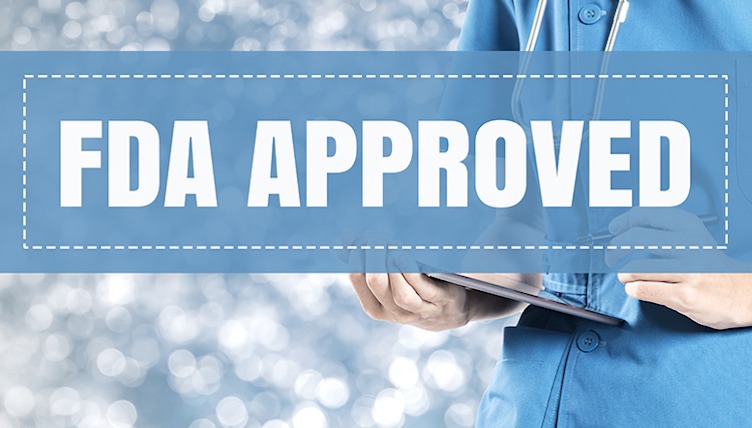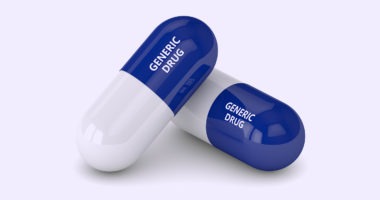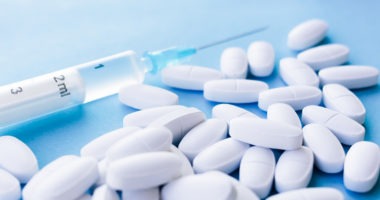New Molecular Entities of 2017: Industry Off to Fast Start
Through early April, the FDA’s Center for Drug Evaluation and Research had approved 13 new molecular entities (NMEs), which far exceeds the pace set in 2016 when the FDA approved 22 NMEs for the full year. So what products are contributing to the uptick?
Among the large pharmaceutical companies, Roche received approval for a multiple sclerosis drug and Sanofi, along with its partner, Regeneron Pharmaceuticals, received approval for a drug to treat a form of eczema. So what other NMEs have cleared the regulatory hurdle thus far in 2017? DCAT Value Chain Insights takes the score.
NME approvals off to a fast start
The number of approvals by the US Food and Drug Administration’s (FDA) Center for Drug Evaluation and Research for new molecular entities (NMEs) is off to a strong start in 2017 after a drop-off in NME approvals in 2016. As of April 3, 2017, the FDA had approved 13 NMEs compared to 22 NMEs (20 new drugs and two new diagnostic/imaging agents) in all of 2016. The 22 NME approvals in 2016 was a drop compared with the 45 NMEs approved in 2015 and was the lowest total of NME approvals since 2010 when 21 NMEs were approved. From 2011 to 2015, NME approvals had been on an upward trajectory (with the exception of 2013) with 30 NMEs approved in 2011 and 39 in 2012. The exception was in 2013, which had a decline to 27 NMEs, but levels jumped again to 41 NMEs in 2014 and peaked at a recent high of 45 approvals in 2015.
Several NME approved thus far in 2017 are projected by some analysts as future blockbusters (defined as drugs with sales of $1 billion) by 2021. They include: Roche’s Ocrevus (ocrelizumab) for treating multiple sclerosis (MS); Regeneron and Sanofi’s Dupixent (dupilumab) for treating a common form of eczema; Novartis’s Kasqali (ribociclib) for treating cancer; Merck Serono’s and Pfizer’s Bavencio (avelumab) for treating cancer; and Tesaro’s Zejula (niraparib) for treating cancer.
Roche’s Ocrevus (ocrelizumab) is expected to materially disrupt the MS market when it launches in the second quarter of 2017, according to a recent analysis by Clarivate Analytics in analyzing future blockbusters. Ocrevus is a first-in-class anti-CD20 antibody, and it showed positive results in reducing the annualized relapse rate in MS and is the first drug to prove effective in primary progressive MS. The Clarivate report points out that initial market share gains are likely in the second line behind oral options and in severe patients on Biogen’s Tysabri (natalizumab) who are at risk of progressive multifocal leukoencephaolopathy, but adoption in naive patients may be expected in the medium term as prescriber familiarity builds. Clarivate projects 2021 sales of $3.3 billion.
Sanofi’s and Regeneron Pharmaceuticals’ Dupixent (dupilumab) is a human monoclonal antibody that is designed to specifically inhibit overactive signaling of two key proteins, IL-4 and IL-13, which are believed to be major drivers of the persistent underlying inflammation in atopic dermatitis (AD), a common form of eczema. The drug was approved by the FDA in March 2017 for treating moderate-to-severe AD whose disease is not adequately controlled with topical prescription therapies, or when those therapies are not advisable. Clarivate projects 2021 sales of $2.8 billion.
Novartis’ Kisqali (ribociclib) is another drug approved in 2017 with potential blockbuster status. It is highly selective CDK4/CDK6 inhibitor, which was approved by the FDA for treating HR-positive, HER2-negative first-line breast cancer. The drug will compete with Pfizer’s CDK4/6 inhibitor, Ibrance (palbociclib), a strong competitor and earlier market entry that was launched in early 2015. Forecasts for 2021 for the drug are nearly $1.3 billion, according to the Clarivate analysis.
Merck KGaA’s and Pfizer’s Bavencio (avelumab) is a fully human anti-PDL1 antibody expected to enter the market in the third quarter of 2017 in its first cancer setting of second-line metastatic Merkel cell carcinoma, a rare form of skin cancer, for which it received FDA approval in March 2017. Avelumab is part of the immunotherapy alliance that Pfizer and Merck KGaA formed in November 2014 under which the companies will collaborate on up to 20 high priority immuno-oncology clinical development programs, including combination trials. The clinical development program for avelumab involves study of more than 15 tumor types, including breast cancer, gastric/gastroesophageal cancer, head and neck cancer, Merkel cell carcinoma (an aggressive form of skin cancer), mesothelioma, melanoma, non-small cell lung cancer, ovarian cancer, renal cell carcinoma, and urothelial (e.g. bladder) cancer. Phase III cinical trials for ovarian cancer are ongoing with data expected in 2018 for 2019. Forecast 2021 sales are $1.2 billion, according to Clarivate.
Tesaro’s Zejula (niraparib), an oral, once-daily poly(ADP-ribose) polymerase (PARP) inhibitor, was approved in 2017 for the maintenance treatment of women with recurrent epithelial ovarian, fallopian tube or primary peritoneal cancer who are in a complete or partial response to platinum-based chemotherapy. Projected 2021 sales are nearly $1.1 billion.
| Table I: Approvals of New Molecular Entities (New Drug Applications (NDAs) and Original Biologics License Applications (BLAs) in 2017 by the US Food and Drug Administration’s Center for Drug Evaluation and Research (as of April 3, 2017). | ||
| Company | Property name (active ingredient); application type | Indication |
| Amgen | Parsabiv (etelcalcetide); NDA | Secondary hyperparathyroidism in adult patients with chronic kidney disease on hemodialysis |
| Lexicon Pharmaceuticals | Xermelo (telotristat ethyl); NDA | Carcinoid syndrome diarrhea |
| Marathon Pharmaceuticals | Emflaza (deflazacort); NDA | Duchenne muscular dystrophy |
| Merck KGaA and Pfizer | Bavencio (avelumab); BLA | Metastatic Merkel cell carcinoma |
| Newron Pharmaceuticals | Xadago (safinamide); NDA | An add-on treatment for patients with Parkinson’s disease |
| Novartis | Kisqali (ribociclib); NDA | Hormone receptor-positive, human epidermal growth factor receptor 2 (HER2)-negative advanced or metastatic breast cancer. |
| Roche | Ocrevus (ocrelizumab); BLA | Relapsing forms of multiple sclerosis and primary progressive multiple sclerosis |
| Sanofi and Regeneron Pharmaceuticals | Dupixent (dupilumab); BLA | Moderate-to-severe eczema (atopic dermatitis) |
| Shionogi | Symproic (naldemedine); NDA | Opioid-induced constipation in adult patients with chronic non-cancer pain |
| Synergy Pharmaceuticals | Trulance (plecanatide); NDA | Chronic idiopathic constipation |
| Tesaro | Zejula (niraparib); NDA | Epithelial ovarian, fallopian tube or primary peritoneal cancer |
| Teva Pharmaceuticals | Austedo (deutetrabenazine); NDA | Chorea associated with Huntington’s disease |
| Valeant Pharmaceuticals | Siliq (brodalumab); BLA | Moderate-to-severe plaque psoriasise |
|
Source: US Food and Drug Administration’s Center for Drug Evaluation and Research and company information. |
||





